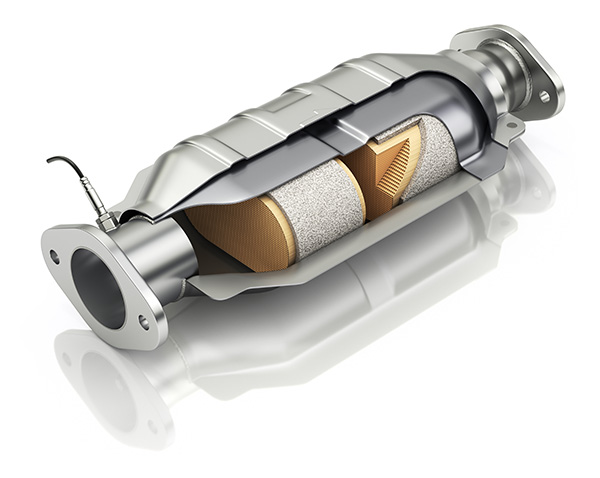
If you’ve started your car and been greeted by an unusually loud roar instead of the usual hum, there’s a chance your catalytic converter has been stolen. Catalytic converter theft has become a widespread issue across the country, affecting all types of vehicles and leaving drivers with unexpected, costly repairs.
But why are thieves targeting this specific part of the exhaust system? And what can you do to protect your vehicle from becoming a target?
What Makes Catalytic Converters So Valuable
Catalytic converters contain precious metals such as platinum, palladium, and rhodium. These metals are essential to the chemical reactions that reduce toxic emissions. In recent years, the value of these metals has skyrocketed, making catalytic converters a lucrative and attractive target for thieves.
The converters are easy to access from underneath the vehicle, and a thief with a cordless saw can remove one in just a few minutes. Once stolen, the part can be sold to scrap yards or online marketplaces, often with little to no questions asked.
Which Vehicles Are Most at Risk
While any vehicle can be targeted, certain models are more appealing to thieves. Trucks and SUVs sit higher off the ground, making it easier to get underneath and remove the converter quickly. Popular targets include Toyota Prius, Honda Element, Ford trucks, and many commercial fleet vehicles.
Hybrid vehicles are especially vulnerable because their catalytic converters often contain higher concentrations of precious metals due to lower engine temperatures and emissions output. This makes them even more attractive to criminals looking for a bigger payout.
What Happens When Yours Is Stolen
If your catalytic converter is stolen, the first thing you’ll notice is the sound. Your car will be much louder than usual, often with a metallic rasp or roar when you accelerate. In some cases, the engine may run poorly or trigger a check engine light, especially if sensors or oxygen lines were damaged during the theft.
Driving without a catalytic converter is not only noisy—it’s illegal in many states due to emissions regulations, but it can also reduce engine performance or fuel efficiency. Replacing the part can cost anywhere from a few hundred to several thousand dollars, depending on the vehicle.
How to Protect Your Vehicle
While no method is foolproof, there are several ways to reduce the risk of catalytic converter theft. Parking in well-lit areas or secured garages makes theft less convenient. If you must park outside, try to park close to fences, walls, or other vehicles that limit access underneath your car.
Anti-theft devices are also available, including catalytic converter shields, cages, and steel cables that make removal more difficult. Some shops also offer welding services to secure the converter to the frame, making it harder to remove.
Etching your VIN or license plate number onto the converter can also act as a deterrent and help law enforcement track stolen parts.
What to Do If Yours Is Stolen
If you suspect your catalytic converter has been stolen, report the theft to local authorities and your insurance company immediately. In many cases, comprehensive insurance will cover the replacement, though a deductible may apply.
At our repair shop, we can confirm whether the converter was removed, check for additional damage, and install a new one that meets emissions standards. We also offer anti-theft solutions to help protect your replacement part in the future.
Community Auto – Catalytic Converter Repair and Protection in Ft. Collins, CO
At Community Auto in Ft. Collins, we understand how disruptive and costly catalytic converter theft can be. Our team provides secure replacements and offers protective options to help prevent future theft. If your vehicle has been targeted or you’re looking for a way to safeguard your exhaust system, schedule an appointment today and let us help protect your ride and your peace of mind.